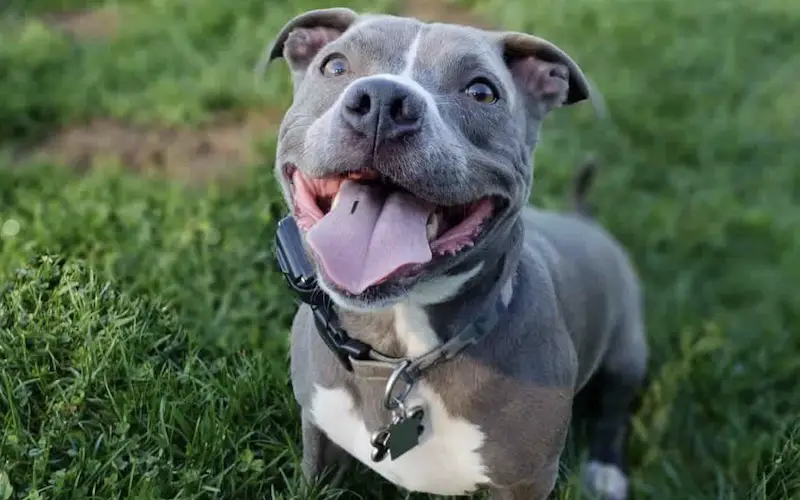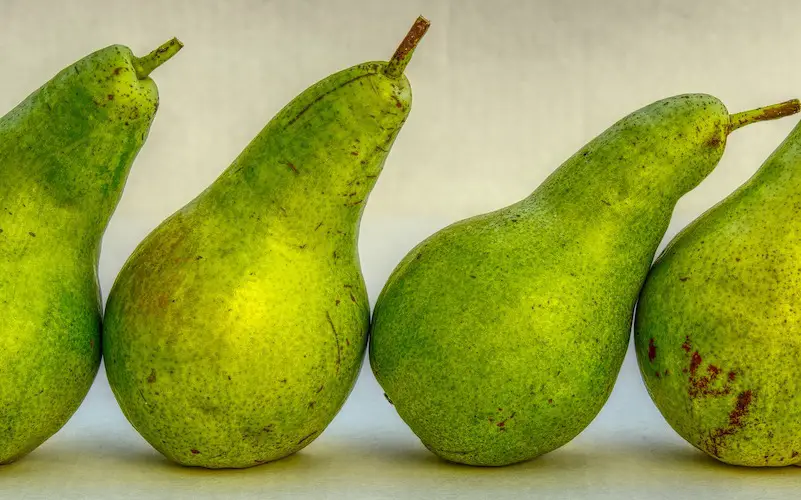patterdaleterriers.co.uk is a participant in the Amazon Services LLC Associates Program and other affiliate advertising programs designed to provide a means for us to earn fees by linking to Amazon.co.uk and affiliated sites. Affiliate links may be used on this page and in patterdaleterriers.co.uk articles, but they do not impact on the price that you pay and they do help me to get this information to you for free. Read my privacy policy for more information regarding affiliates.
I often get asked ‘Can dogs eat Pears?’ Pears are a delicious juicy snack, but are they safe for our furry friends to eat too? Just like any human food, there are both benefits and risks to giving dogs a fruity treat.
Health Benefits of Pears for Dogs
Pears are rich in dietary fibre, which helps to maintain optimum levels of good bacteria and therefore, a healthy digestive system. If your dog suffers with diarrhoea or constipation, your vet will normally suggest a fibre-based diet change.
Potassium is also found in pears. This macro mineral is needed for the development and functioning of muscles, blood vessels, nerves, and digestive enzymes. If your dog is diagnosed with Hypokalaemia, pears are a great treat. This illness is caused when potassium levels are low.
Nutritional vitamins found in pears are A, C and K. Vitamin A promotes healthy eye function as well as immune and cell function and foetal development in pregnant bitches. Vitamin C is an antioxidant that helps reduce inflammation and is often given as a supplement to dogs with joint problems. Vitamin K is a vital component in activating clotting in your dog’s blood. A vitamin K deficiency can lead to haemorrhaging if not treated quickly.

Can Dogs Eat Pears? What are the Risks?
As with other exotic fruits such as Mango and Apricot, the seeds contain trace amounts of cyanide. It is toxic if enough seeds are chewed and treatment is not sought immediately. Cyanide prevents cells in the body from absorbing oxygen from the blood, essentially causing cell suffocation. In large enough doses, cyanide can be fatal. It can also cause other systems such as difficulty breathing, convulsions and paralysis.
Obstruction or blockage is another risk in feeding pears. If fed whole, the core can become a choking hazard or become lodged along the digestive tract if not chewed enough. If your dog is suffering from an obstruction, signs to look out for are:
- Vomiting
- Diarrhoea
- Stomach pain
- Loss of appetite
If the obstruction does not dislodge on its own, the only treatment is surgery. If you suspect your dog has a blockage due to something he ate, consult a vet as soon as possible.
If seeds are chewed before swallowing, they will have rough edges. These can cause tearing of the oesophagus (the tube from the mouth to the stomach). This can cause complications such as ulcers or pneumonia.
Conclusion
As long as you follow some basic preparation guidelines, pears are a perfectly safe treat to give your dog. Feeding ideas include simply cutting into bite-size pieces, mashing or blending the flesh to be spread on a licky mat or by freezing small chucks into an ice cube tray for a summer treat that will also give them some mental stimulation.
If you enjoyed this article on ‘Can dogs eat Pears?’ then you might also like to read…

